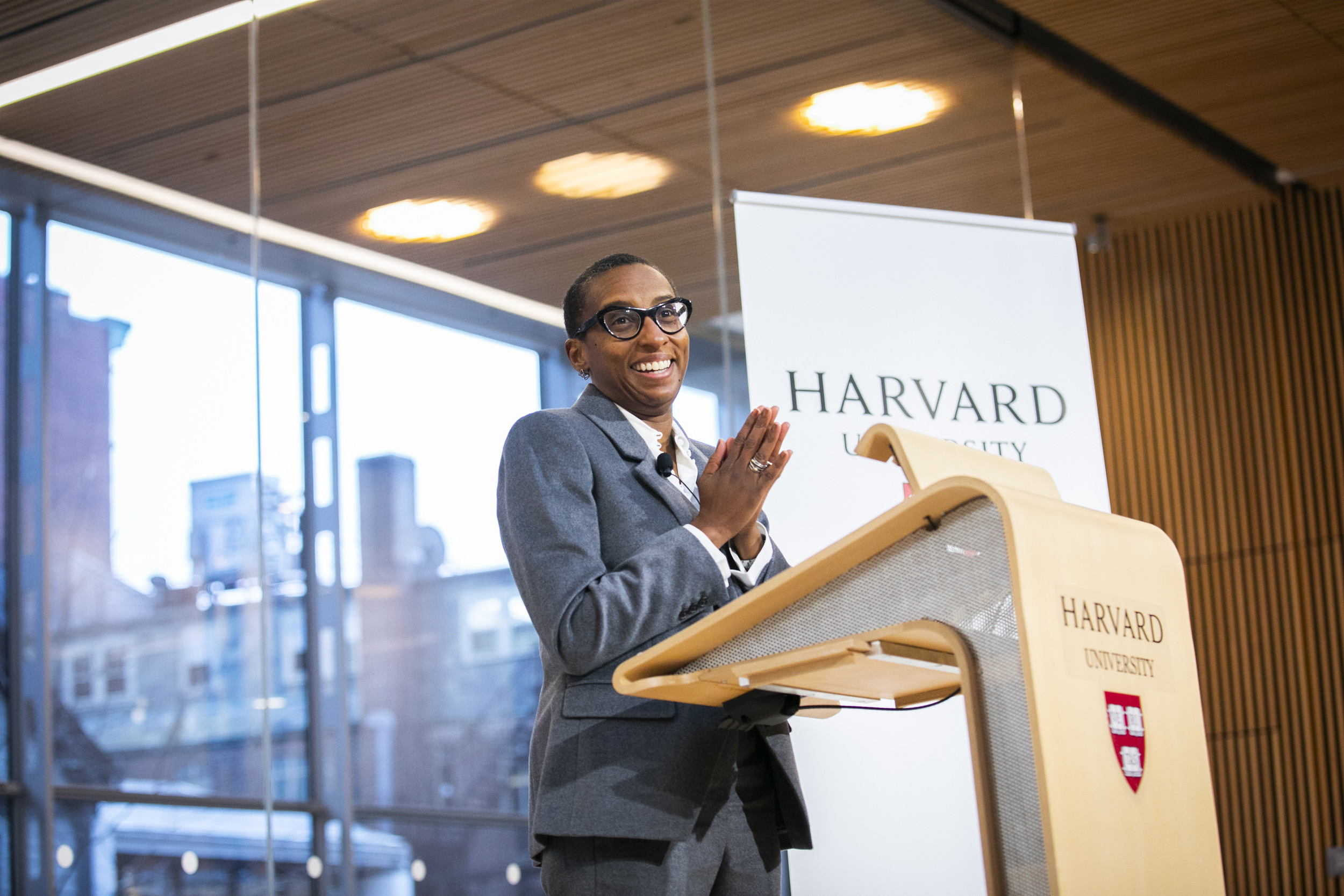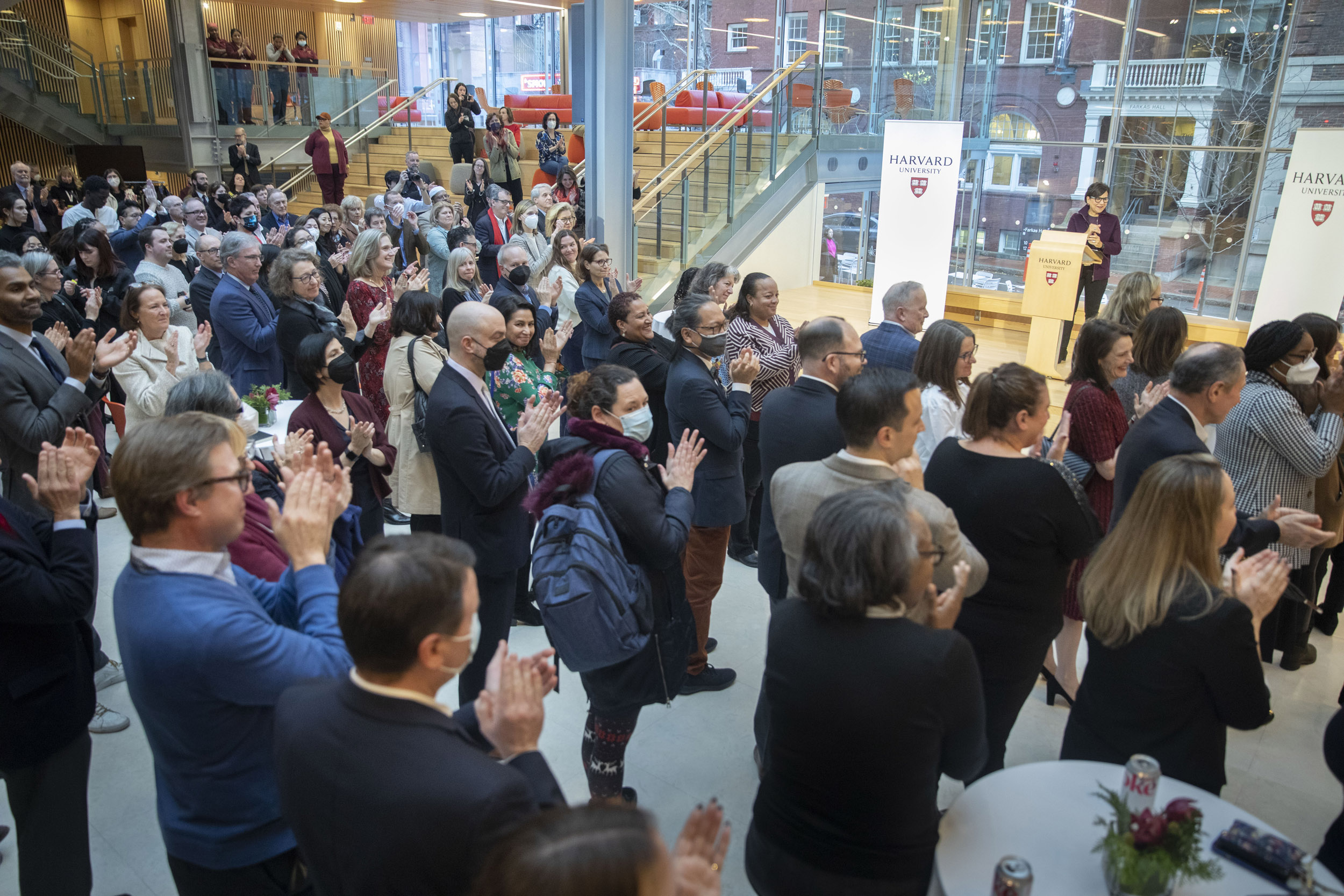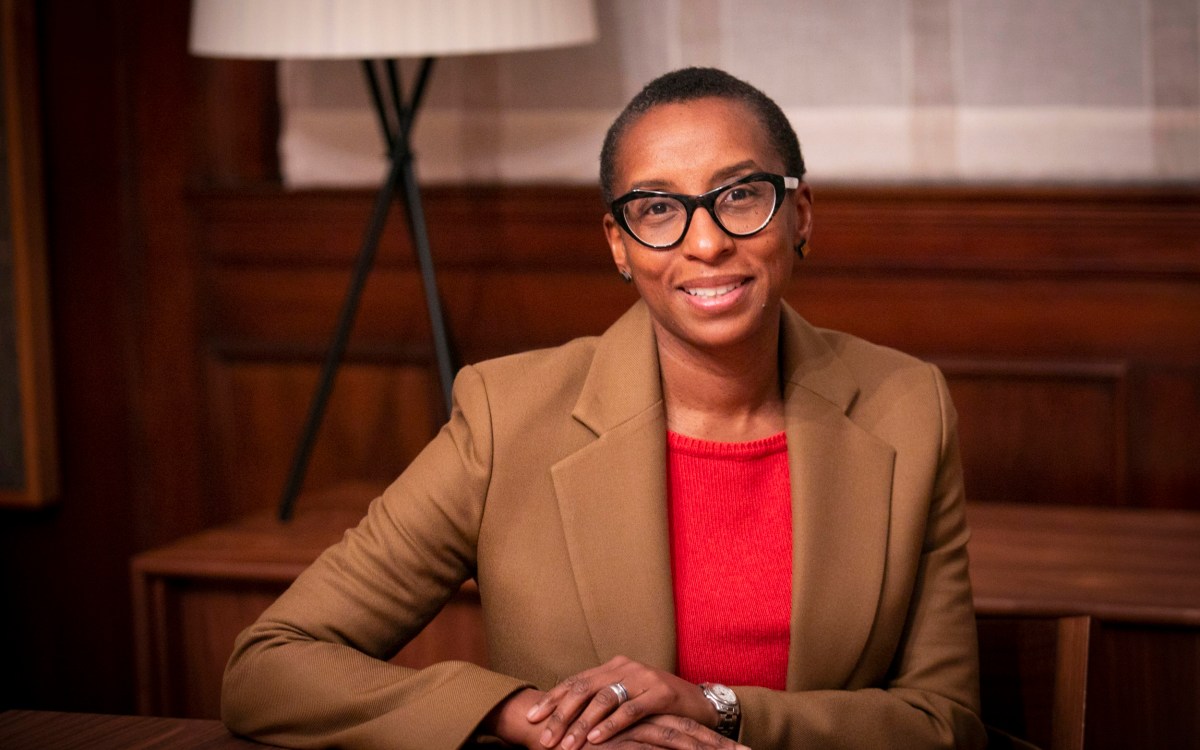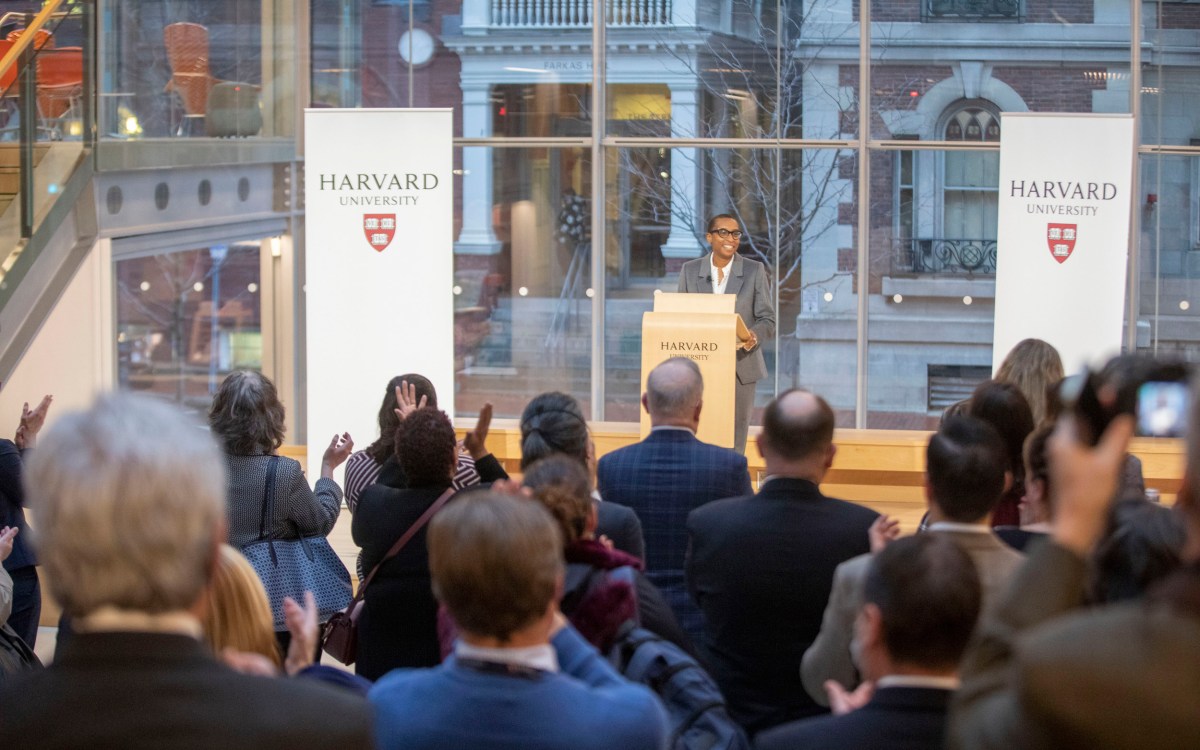
Claudine Gay addresses the Harvard community for the first time as president-elect.
Stephanie Mitchell/Harvard Staff Photographer
‘I love this place’
Claudine Gay details her own past at Harvard, plans for future after being named 30th president
Greeted by joyous hoots and a thundering ovation, Claudine Gay, Edgerley Family Dean of Harvard’s Faculty of Arts and Sciences, spoke before an ebullient crowd Thursday afternoon at Smith Campus Center for the first time as the University’s 30th president-elect.
“I love this place. Harvard is where I found my intellectual home. It has nurtured and inspired me since I first set foot in the Yard,” said Gay. “I am deeply invested, not only in what Harvard is today, but also in what Harvard’s leadership means for the future.”
Gay, who was elected earlier in day by the Harvard Corporation, the University’s principal governing board, was introduced by Penny Pritzker, who headed the search committee. Pritzker, a College alumna and former U.S. secretary of commerce, described Gay as a “natural collaborator” and a “remarkable” leader and scholar, a person of “deep integrity” who sets high standards for herself and others and who “brings people together in a spirit of common purpose.”

Penny Pritzker (at podium) introduces Claudine Gay as the incoming president of Harvard University.
Kris Snibbe/Harvard Staff Photographer
“Not least of all, Claudine is a terrific human being,” Pritzker said. “She’s engaging, warm, empathetic, humane. At once confident and humble. A pleasure to spend time with.”
Gay appeared humbled as she took the stage (“It’s crazy, right?” she joked) and said the moment took her back to her days as a first-year graduate student. She recalled moving into Haskins Hall, “lugging the things that seemed most essential to my success at the time: a futon, a Mac Classic II, and a cast-iron skillet for frying plantains.”
“That Claudine could not possibly have imagined that her path would lead here,” she said. “But I carry forward both her excitement, and her belief in the infinite possibility of Harvard.”
Gay spoke of her parents, who immigrated to the U.S. from Haiti. “They came to the U.S. with very little and put themselves through college while raising our family. My mom became a registered nurse and my dad a civil engineer, and it was the City College of New York that made those careers possible. … My parents believed that education opens every door.”
(She also joked that when it came time to choose a course of study they only gave her three options: engineering, medicine, or law, “which I’m sure that other kids of immigrant parents can relate to.”)
Gay said that among her top priorities will be connecting the University even more closely to the world, through scholarship and partnerships with for-profits and nonprofits, and making higher education more accessible to a wider array of people.
“The idea of the Ivory Tower, that is the past, not the future, of academia. We don’t exist outside of society, but as part of it. Harvard has a duty to lean in and engage, and to be in service to the world. Our people, our collections, our research, how we use our convening power in business, in law, in public policy for all of that, our commitment must be to openness and engagement.”
During a Q&A session with reporters later in the afternoon, Gay declined to speculate on how the University might respond if the U.S. Supreme Court decides to strike down race-conscious admissions next year, saying only “we will continue to champion the value of diversity, irrespective of how the landscape around that might change.”
Adopting recommendations from the Harvard & the Legacy of Slavery report will create “an opportunity for reckoning and repair” and give the University a chance to build deep connections to the scholarly communities at historically Black colleges and universities and other “minority-serving institutions,” she added.
Gay will be the first African American and only the second woman to lead Harvard in its 386-year history. Her selection comes after current President Larry Bacow announced in June that he would step down at the close of 2022-2023 academic year after five years as president.
The new president-elect graduated from Stanford University in 1992 with an undergraduate degree in economics and went on to earn a Ph.D. in government at Harvard in 1998. A quantitative social scientist with expertise in political behavior, Gay was a tenured faculty member at Stanford before joining the Harvard faculty in 2006 as a government professor. In 2007, she was appointed a professor of African and African American Studies, as well. Gay was named dean of social sciences at the Faculty of Arts and Sciences in 2015 before becoming the School’s dean in July 2018.






